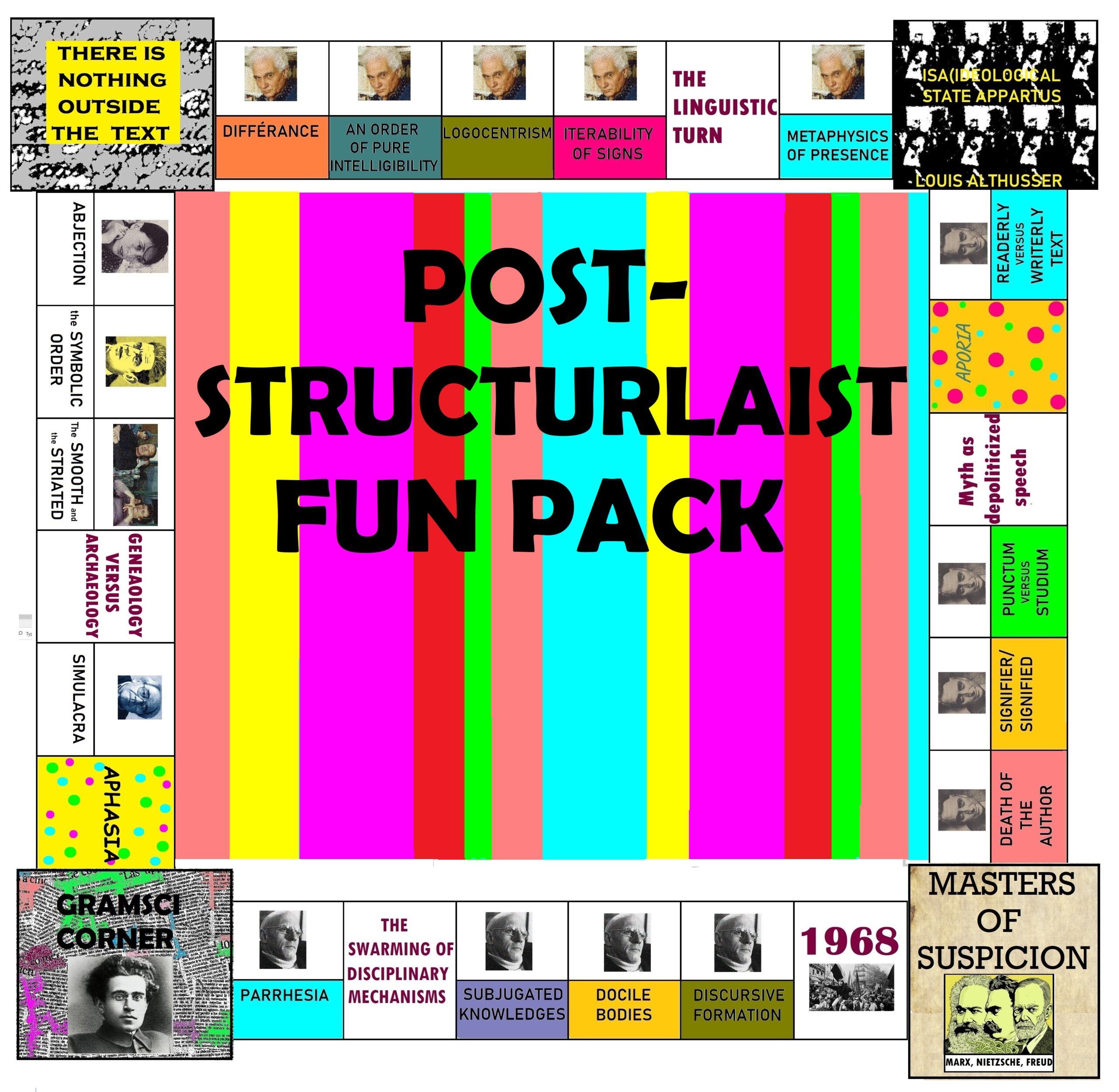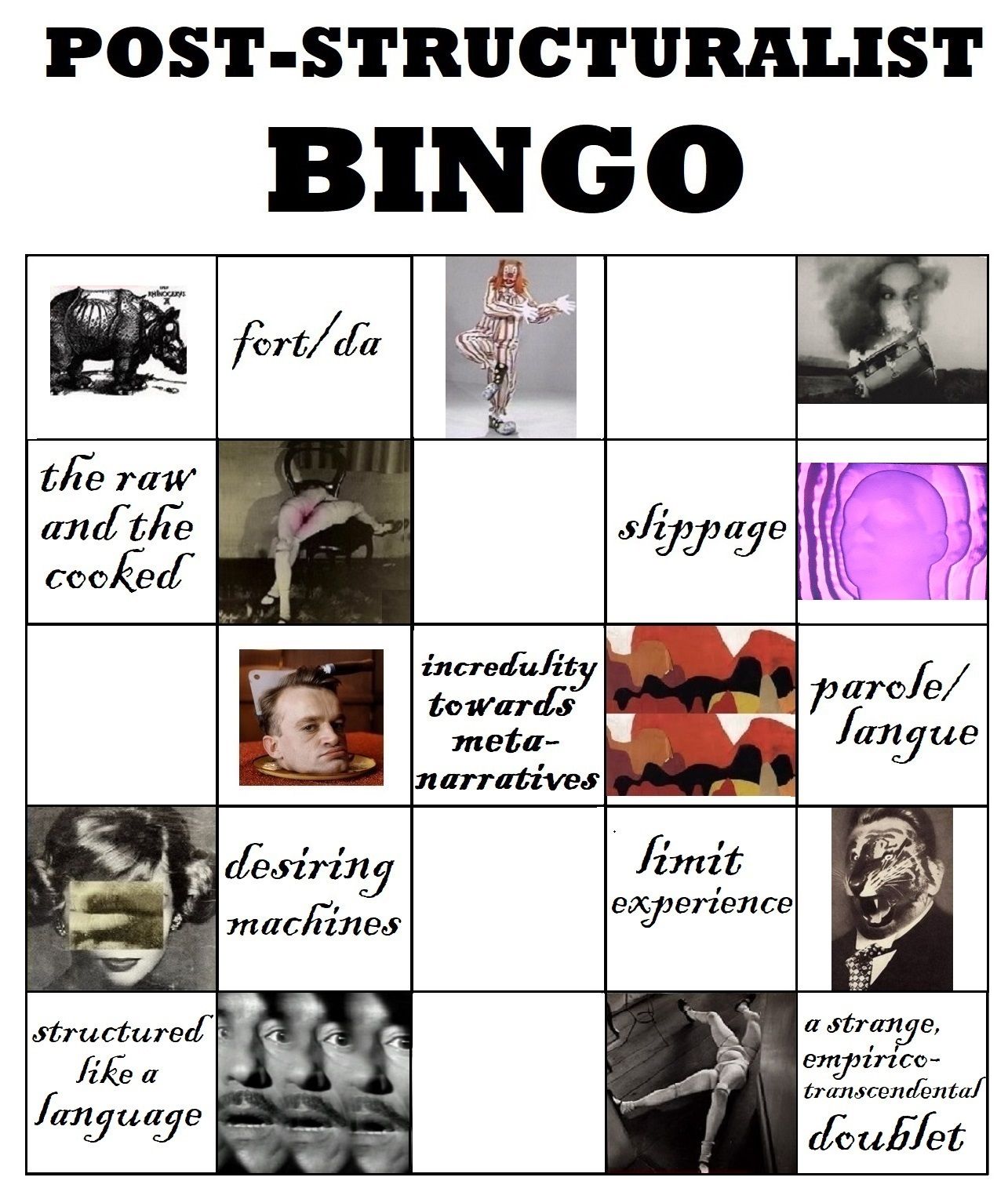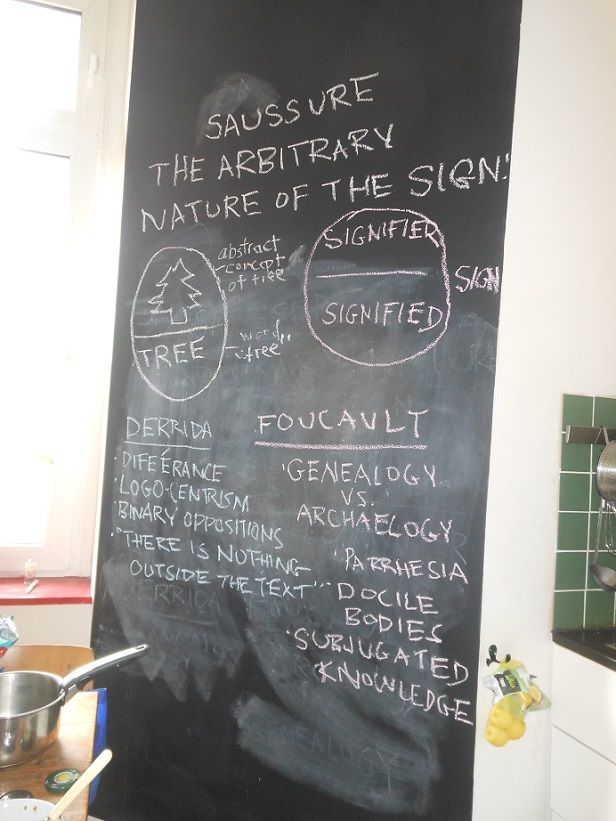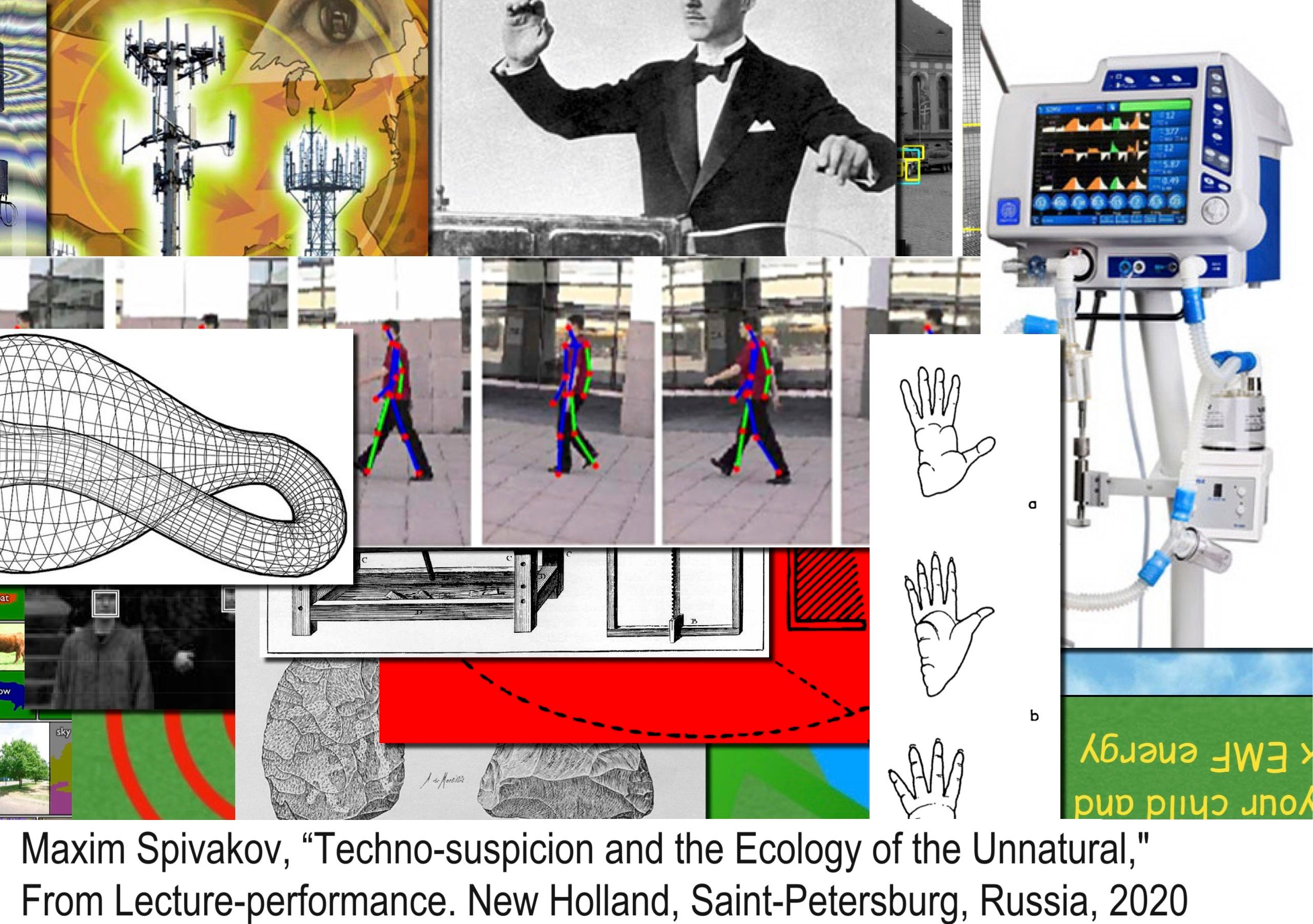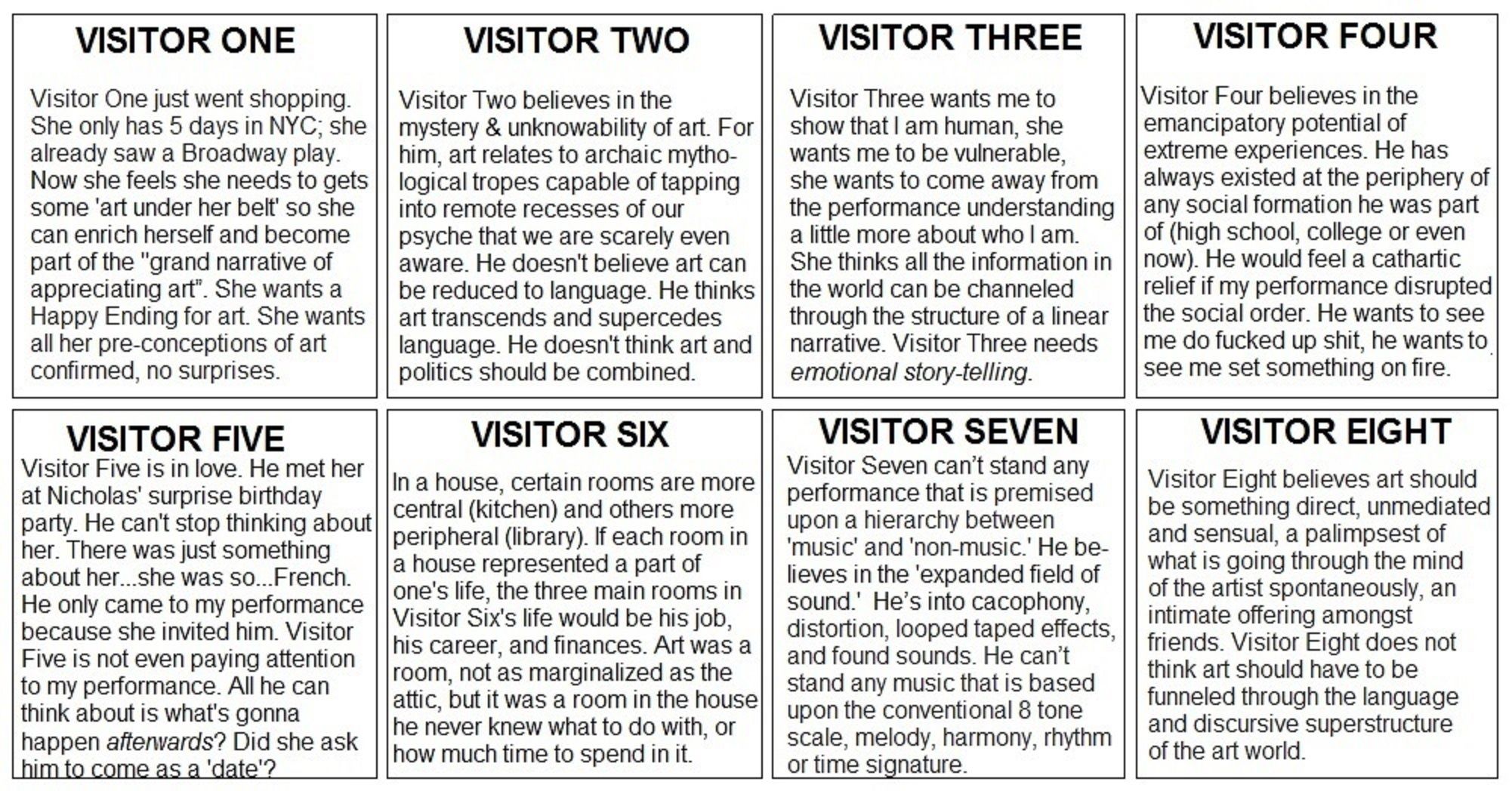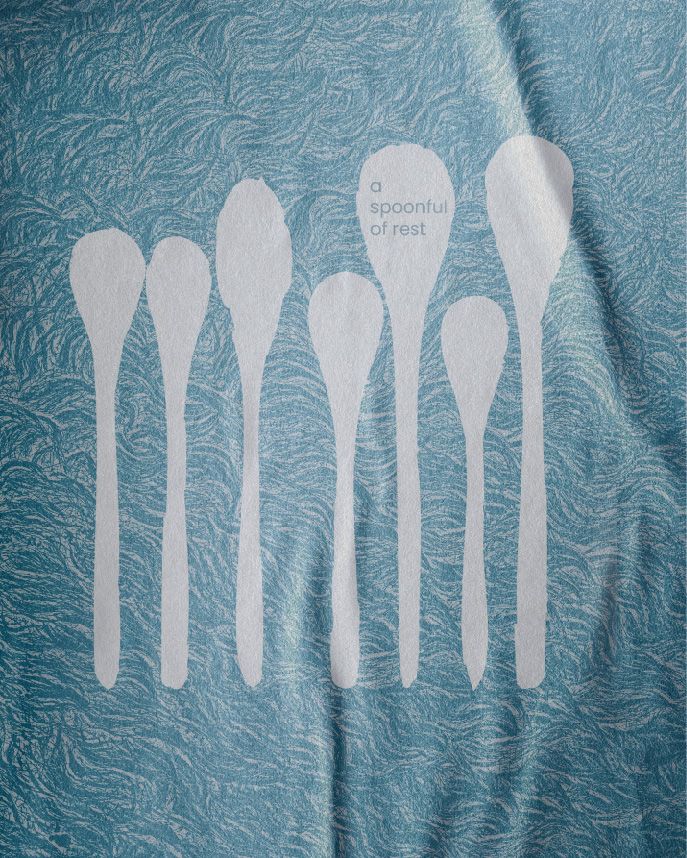A Parable for Post-structuralism:
In Lewis Carroll’s Alice in Through the Looking Glass, Humpty Dumpty explains to Alice why “un-birthday presents” are better than birthday presents. After applauding himself for making a good argument, he says “Glory!” Alice asks, “What’s glory?” Humpty replies, “It’s a nice knock down argument.” Alice protests and says “glory” and “nice knock down argument” do not mean the same thing. Humpty Dumpty replies, “When I use a word, it means just what I choose it to mean – neither more nor less.”
A word and its meaning; sound and sense; the ‘signifier’ and the ‘signified.’ Much of post-structuralist thought can be interpreted as coming out of a radicalization of Saussure’s “arbitrary nature of the sign” (A Course in General Linguistics, 1916), which told us there is no inherent relation between the “signified” (sound-image of word) and the “signifier” (concept of a word). The word “dog” has no inherent “dogginess;” we could have just as easily called a dog a “tree”, “polka-dot” or “fire.” Post-structuralism flourishes in this gap between signifier and signified—all its creativity, vitality and perspicacity comes from exploiting the instability between signifier and signified.
Post-structuralism is suffused with an intractable suspicion, as it scrutinizes the ways in which symbolic systems are employed to establish and perpetuate authority (if not domination). Post-structuralism can be understood as a discrediting project. It wants to discredit the notion of “truth” as universal, timeless and monolithic, but instead truth as an unstable field of competing epistemic claims (the progenitor being Nietzsche). It wants to discredit the assumption that words are capable of referring to a meaning existing outside of language, but instead meaning is only the effect (and not the cause) of language itself. It wants to discredit the triumphalism of humanism which posits that “man” is on a teleological trajectory towards progress, but instead diminishes man to a “strange empirico-transcendental doublet” (The Order of Things, Foucault), man as mere accident of historical discourses. It wants to discredit the notion of the Cartesian “subject” as rational, coherent & capable of free will—but instead the subject as imbricated in an invisible matrix of power struggles beyond its control, divided against itself. It wants to discredit the notion of a “work” as a hermetically sealed masterpiece with a single stagnant meaning which we have to ‘unlock’—but instead the “text” as an unstable tissue of quotations whose meaning is constantly deferred.
In its heyday, post-structuralism ignited a conflagration in the U.S. (though not in Europe), becoming a political football in the “culture wars” of the 1980’s (because of its ability to erode citadels of cultural authority), leading to the politicization of the humanities in the U.S. and the rise of the “Studies” fields (i.e. Culture Studies, Gender Studies, Postcolonial Studies, Ethnic Studies, etc. Even the difference today between a university department being called “Art History” versus “Visual Cultures” is the unspoken legacy of post-structuralism (art history = a more old-fashioned cavalcade of canonical “masterpieces”; visual cultures = post-1960’s approach to visual phenomena in the expanded field as imbricated in material, social and political discourses). Lacan brought psychoanalysis into the domain of philosophy; Derrida brought literature into philosophy. Whereas once criticism was subservient to literature, post-structuralists brought criticism into such efflorescence that criticism challenged the primacy of literature.
This project will turn post-structuralism into fun material objects you can touch and feel (so craft & theory no longer have to be segregated). It will create a post-structuralist board game, a cartoon series called “Post-structuralist Comics,” homemade post-structuralist jewelry (post-structuralist bracelets & necklaces,) and a Working Group called “The Arts of Post-structuralism”.
